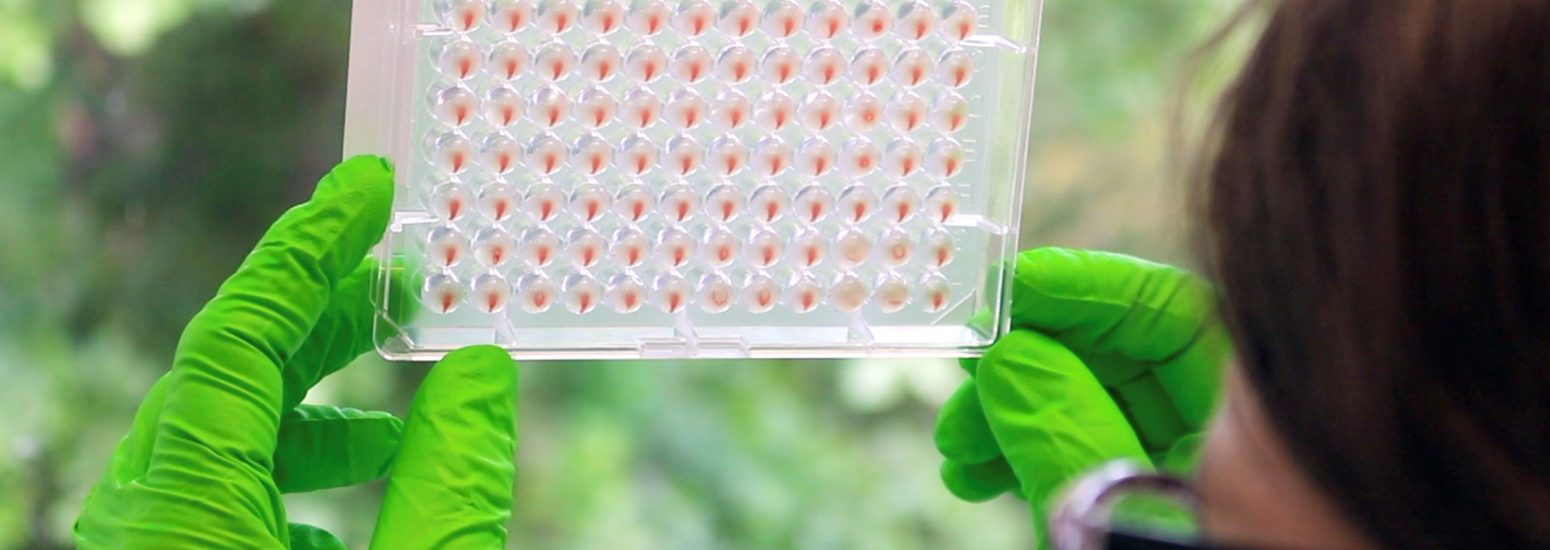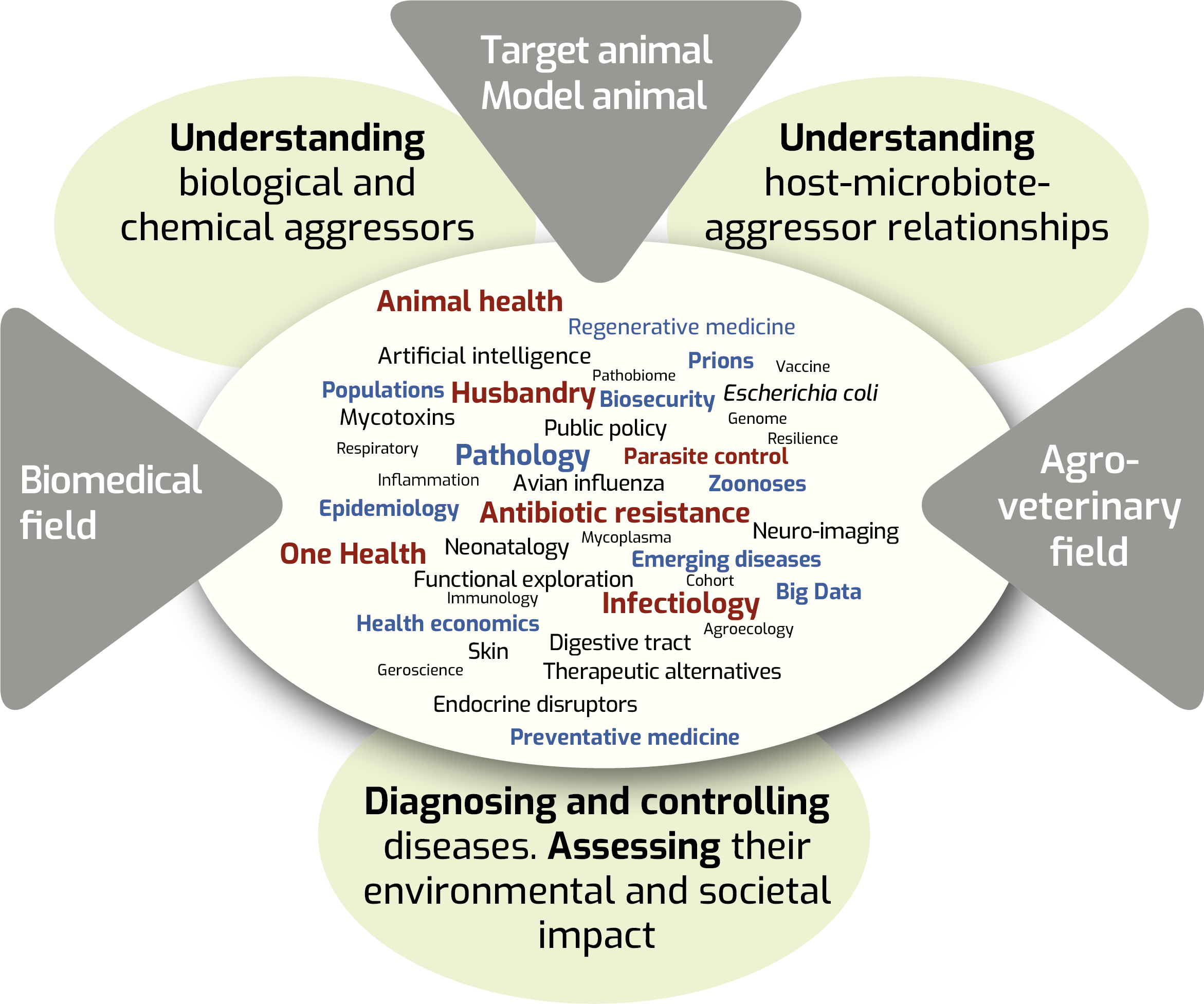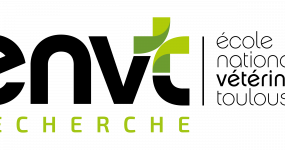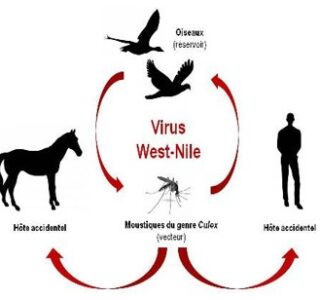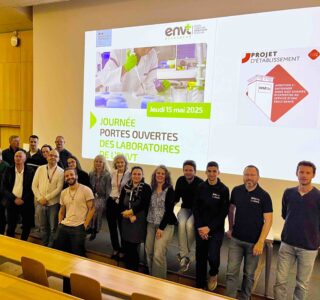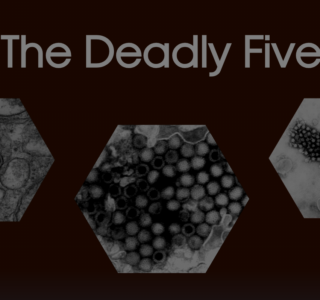Our research activities provide knowledge in the agro-veterinary and biomedical fields, within a continuum that goes from animal health to human health.
- Infectious diseases and animal health management
Knowledge of pathogens aims to better understand the conditions of evolution and emergence, the mechanisms of virulence, of adaptation to the animal host, and of resistance to anti-infectious and anti-parasitic agents. This thematic axis gathers research on different pathogens representing a danger for animals and/or humans, in particular viruses with respiratory tropism (Influenza, Coronavirus) of avian and ruminant species, bacteria (ruminant mycoplasma, E. coli), prions, internal parasites (nematodes, Besnoitia) and external parasites (insects).
At the animal level, a better knowledge of the pathogenesis of infectious diseases (virulence factors, immune or inflammatory mechanisms) allows the identification and evaluation of new diagnostic or control tools (vaccination). At the population level, the purpouse of the knowledge produced is to better understand the transmission cycles, with the aim of predicting and controlling emergences and defining preventative action levers.
Research on antibiotic and insecticide/antiparasitic resistance aims at developing effective, economical and innovative antibiotic and antiparasitic infection control strategies.
Our units involved sont IHAP and InTheRes, IRSD, InFinity, Neocare et ASTRE
- Therapeutic innovation and health management in livestock
Our units involved are IHAP and InTheRes, IRSD et ASTRE
- Health management and precision connected medicine
New methods of intervention in veterinary medicine are being developed to detect early and accurately alterations in health and/or production. They are built by individualized approaches carried out at the individual or population level (precision medicine). The objectives are to improve decision-making support on aspects of diagnosis and control (individualized therapy), at different scales (pathogens, animals, animal populations).
Our units involved are IHAP and InTheRes, IRSD and ASTRE
- Improving animal robustness and resilience of farming systems
Genetic/chromosomal determinants of disease or animal robustness, in combination with dietary factors, are essential levers for understanding diseases and controlling health. In particular, the knowledge of commensal or pathogenic microbial communities (microbiomes or pathobiomes) allows to optimize commensal ecosystems, especially digestive ones, and to identify control levers (rational use of medicinal inputs, probiotics, …). Research on resistance to antibiotics, insecticides and antiparasitics aims to develop innovative infection control strategies that are economical in terms of antibiotics and antiparasitics and that preserve non-target bacterial ecosystems.
The identification of practical barriers and levers of animal disease control measures in relation to human management of livestock is essential to identify the economic impact of diseases and prevention measures, in order to inform decisions.
- Food contaminants and impact on the health
The research conducted aims to better understand the effects on human or animal health of chronic exposure to natural or industrial food contaminants (mycotoxins, pesticides, packaging migrates, perfluorinated agents…) at low dose, possibly in the form of mixtures and during critical phases of development (perinatal). The topics covered include what these toxins become once in the body, the characterization of the dangers associated with their consumption (metabolic and endocrine diseases,..) and their mechanisms of action on the body.
Translational research of veterinary interest
Translational research activities are conducted in neonatology of carnivores (Neocare) and in partnership with Inserm, in regenerative medicine (mesenchymal stem cells) (Restore), in neuroimaging (ToNIC), in dermatology and immunology (InFinity) and on chronic diseases (inflammation (IRSD) and cancer (CRCT).
In addition, the use of animals (especially laboratory animals) as models for humans requires their phenotypic characterization through the establishment of reference intervals (CREFRE).
A research axis Health throughout life for domestic carnivores is currently being structured. The setting up of the Inspire cohort of dogs, in parallel with a human and murine cohort in partnership with Inserm (Restore) will make it possible to understand the mechanisms involved in aging or associated with early metabolic wear and tear. It is a real opportunity to build a bio bank to address different clinical questions related to the health path of carnivores (Clinical Research).












































































































